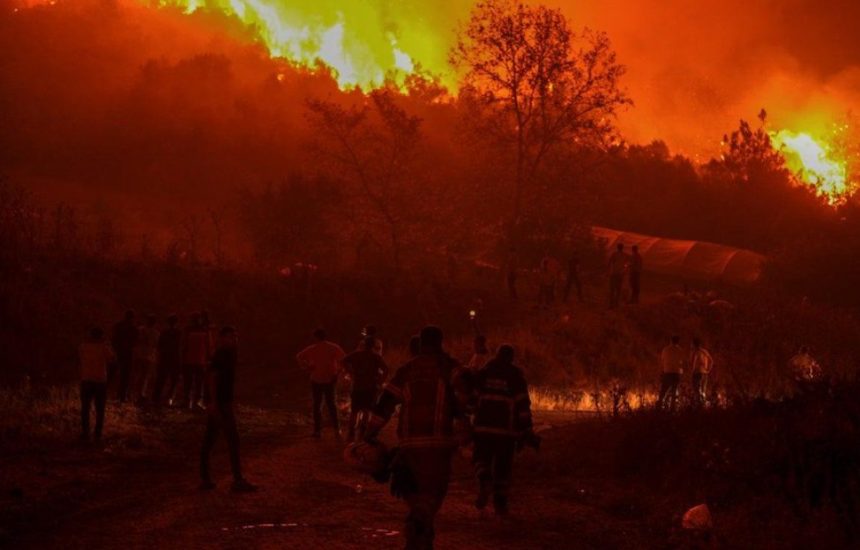Heatwave Triggers ‘Apocalyptic’ Wildfires in Turkey: 14 Dead as Flames Threaten Major City
A blistering heatwave in Turkey has sparked a string of deadly wildfires, leaving at least 14 people dead and pushing emergency services to their limit.
The fires have now reached the outskirts of Bursa, the country’s fourth-largest city, located in the northwest. Over 1,100 firefighters are currently on the ground, battling to contain the blaze that has already consumed more than 3,000 hectares of land.
Local roads, including the main highway to Ankara, have been shut down due to dangerous conditions.
One firefighter tragically lost his life after suffering a heart attack while on duty. In a statement, Bursa’s mayor, Mustafa Bozbey, confirmed the death and praised the bravery of crews working tirelessly to protect lives and property.
The local governor’s office said on Sunday that 1,765 residents had been evacuated from vulnerable villages.
Orhan Saribal, a local MP from the opposition party, described the devastation bluntly: “an apocalypse”.
TV footage on Sunday morning painted a grim picture. Once-lush pine forests and farmlands were reduced to ash. The smell of smoke lingers for miles.
Though winds eased slightly overnight, giving fire crews a much-needed break, the danger is far from over. The wildfires continue to rage across the northwest and beyond.
Recent weeks have been punishing. Ten forestry workers and rescue volunteers were killed just days ago in Eskisehir, in western Turkey. It brings the death toll to 14, and counting.
The root cause? An unprecedented heatwave. Turkey shattered its all-time temperature record on Friday, hitting a staggering 50.5°C in the southeastern city of Sirnak. That figure is expected to rise even further.
The Turkish General Directorate of Meteorology warned that July temperatures have reached record highs in 132 locations across the country.
Scientists believe such extremes are becoming the norm, a concern echoed in recent research highlighting how heatwaves and rising ocean temperatures may mark a new climate baseline.
Fuelled by the extreme heat, bone-dry landscapes, and strong winds, wildfires have erupted daily since late June. Agriculture and Forestry Minister İbrahim Yumakli confirmed that emergency teams responded to 76 fires on Saturday alone, 28 in forested areas and 48 in rural zones.
He said the northwest region remains the most at risk, especially in Karabük, where blazes have persisted since Tuesday.
In a public address, Mr Yumakli urged vigilance and unity: “As the Ministry of Agriculture and Forestry, we are on the ground fighting forest fires with our planes, helicopters, and unmanned aerial vehicles in the sky, our forest heroes on duty 24/7 on the ground, our land vehicles, AFAD, the provincial governor’s office, local governments, and non-governmental organisations.
We are ready, but the best way to extinguish fires – cost-free, problem-free, and without paying any price – is to prevent them from starting.”
Two western provinces, Izmir and Bilecik, have already been declared disaster zones.
Meanwhile, Justice Minister Yilmaz Tunc reported that legal investigations into the blazes are ongoing in 33 provinces, with 97 suspects facing legal action since late June.
The crisis has raised serious questions about preparedness, climate resilience, and whether this level of destruction could have been avoided.
For now, firefighters and volunteers continue their relentless battle against nature’s fury. But as Turkey swelters under the grip of this unforgiving heatwave, the risk is far from over.






